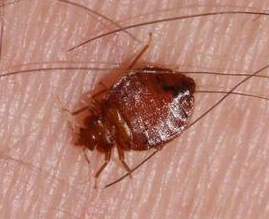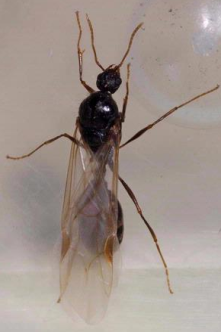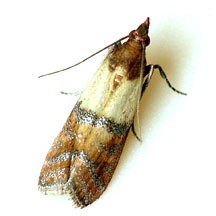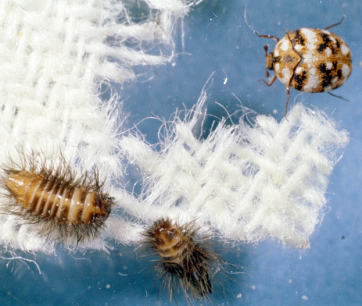Don’t Get Caught with Unexpected ‘Guests’ – Pest Control Tips

By Ray Reuter
Hiring a qualified pest control operator is one piece of the Real Estate business that Canadian real estate investors often overlook. Whether you are purchasing a new property and don’t want to inherit problems or you are managing your current assets, pest control and inspections can be a critical part of your business.
With bedbug infestations substantially up across the country, some provinces have introduced legislation that requires landlords to pay the entire cost of exterminating these particular pests as well as others. If you’re not sure about a landlord’s responsibility for pest control costs, check out the provincial landlord tenant laws.
While not a ‘sexy’ part of investing, taking a little time to understand the role insects play in your rental business, both from a purchasing aspect or as a landlord, can help you manage your costs, your expectations and those of your tenants. You do not want litigation or fines knocking on your door.
Here are some of the most common ‘rental pests’:
Bed Bugs – Possibly the ‘hottest’ topic in the bug world these days, these bloodsuckers are springing up everywhere after a very long hiatus. Not only are bed bugs costly to  remove, but they can cause physical discomfort, psychological distress and social stigma
remove, but they can cause physical discomfort, psychological distress and social stigma
Bed bugs are difficult to notice by the untrained eye as they are experts at hiding, move quickly and are nocturnal. Small brown spots on mattresses, specifically around the seams, are tell tale signs of bed bug activity. It is good practice to check your own mattress and any you come in contact with prior to catching some Z’s. If you think you may have pesky bed bugs on your mattress, it’s best to call in pest control, such as Terminix missouri to get a better nights sleep. Other than calling pest control yourself, there are other measures you can take to minimize their impact:
- Education – Make your tenants very aware of the issue; a pest bulletin should be provided as part of move in. Education is Key to prevention and control.
- Quick Action – Allowing the infestation to grow will only make it more difficult to get rid of. During monthly or quarterly inspections of your units, pay particular attention for signs of bed bugs and keep communication open with your tenants.
- Avoid ‘Hand Me Downs’ – Second hand bedding and furniture is dangerous, many times the mattress was disposed of for a reason so leave it! If anything, get them a brand new one to show you care about your guests. Check out this 獨立筒床墊推薦 to find the best mattress.
Bed bugs are not picky and will feed on anyone in any home. Most importantly, they can cost you significant sums of money if ignored. If you have bed bugs or your tenants complain of bed bugs, take is seriously and contact a professional immediately.
Carpenter Ants – Nothing like BIG flying ants coming out of your walls! There are many different species of ants out there: most are completely harmless and many are beneficial, but carpenter ants can cause damage to the structure of your home if left long enough. You can use https://pestguide.org/pest-guide-category/ants/ to check if they are the dangerous sort. Here are a few tips for preventing carpenter ants:
but carpenter ants can cause damage to the structure of your home if left long enough. You can use https://pestguide.org/pest-guide-category/ants/ to check if they are the dangerous sort. Here are a few tips for preventing carpenter ants:
- Keep them Out – Seal the exterior of your units, especially around the foundation, where the plumbing and electric enters the building, and around doors and windows.
- Maintain Your Unit – fix leaky roofs, clogged gutters, broken downspouts and leaks in general (moist/rotting wood is ideal for carpenter ants).
- Landscaping – Cut trees and shrubs back that contact the exterior and roof, replace rotting landscape timbers and railroad ties, remove stumps and keep firewood off the ground and away from the house.
If you have carpenter ants, a professional pest control operator is most often the best solution. However, one word of caution if you have carpenter ants: Do Not Spray the Ants you find! Successful elimination means finding the source – their nest(s). Be patient and follow the ants or attempt to coax them with diluted honey in an effort to get them to lead you to their nest. Determining nest location is key.
Indian Meal Moth – This is an extremely common pest associated with stored foods such as flour, dried pet foods, birdseed, powdered milk, dried fruits, crackers, chocolate and many other items in your pantry. Sanitation is paramount with this pest so keeping a clean kitchen can really pay off.
You will typically see the adult moths flying around the  kitchen or the tiny white worms (caterpillars) crawling on counters and walls if you have an infestation. If you see these moths, a thorough inspection is needed wherever you store food items. These pests can be tricky to find because they often eat food left in out-of-sight places behind appliances or way in the back of the pantry.
kitchen or the tiny white worms (caterpillars) crawling on counters and walls if you have an infestation. If you see these moths, a thorough inspection is needed wherever you store food items. These pests can be tricky to find because they often eat food left in out-of-sight places behind appliances or way in the back of the pantry.
Tips for Prevention:
- Keep it Clean – Thoroughly clean pantry and shelves, keep counters clean, store food in glass jars or heavy plastic containers with lids (not in original packaging), only buy small quantities of foods not often used, and tidy up regularly.
- Purge – If you haven’t eaten it in a year chuck it!
The Indian Meal Moth is completely preventable with good sanitation and tidy food handling and storage, but large infestation may require a pest control operator. Keeping a clean kitchen can keep you (or your tenants) from losing valuable food and will save you time and money in the long run.
Carpet Beetles – Carpet beetles are usually small, oval shaped and some species appear ‘fuzzy’. These beetles feed on wool (carpet and clothing), silk, furs, feathers (down pillows and duvets), leather, and some types of stored food. Damage from carpet beetles  can be significant, so early detection is key to avoiding costly cleanup and replacement of goods.
can be significant, so early detection is key to avoiding costly cleanup and replacement of goods.
Carpet beetles prefer dark ‘quiet’ areas such as closets, under furniture, air ducts, carpet edges/under baseboards, so thorough cleaning of these areas is important. Here are a few preventative measures to implement:
- Vacuum! – Sanitation is important for carpet beetles, especially if you have pets. Pet hair and even lint can be a food source. Do a thorough vacuuming, including under sofas, sofa cushions, under appliances, in closets, and along baseboards with a crevice attachment at least quarterly (monthly is better).
- Store Clothing Properly – Tossing a dirty wool sweater on the top shelf of your closet is a no-no. Clean all unused items first, and then store clothing in sealable bags (with moth balls if you can stand the smell). Keep shelving and closet floors clean.
If you find yourself with a carpet beetle infestation, the cleaning measures above are a good first step to dealing with the problem. You’ll also want to throw out heavily infested articles, clean all clothing in hot water and for those that you can’t heat freeze for a minimum of 7 days. For large infestations, a pest control operator will be necessary.
Finding a Good Pest Control Operator
Before flipping through the yellow pages or doing a Google search and picking the company with the cheapest price or the best looking ad, make sure you do your homework. It is amazing how many investors and home owners cut corners when it comes to pest control, but the truth is a good pest control operator is well worth the price they charge. Here are some hiring tips:
Go Pro
Look for companies belonging to professional organizations such as the Canadian or National Pest Management Association, as well as province specific programs. Affiliation shows a company is serious about continued learning, has potential access to the latest pest management techniques and can network with fellow operators when they need outside assistance.
Ask About Control Measures
Call a few companies to discuss the techniques they use when dealing with a particular pest after you educate yourself. If the answers vary widely, call a local university with an entomology program or pest management extension service to get a second opinion.
Check References
Service provider references are critical. Ask to talk to clients whose properties had similar pest issues as yours so you can follow up to see if the problem was remedied and if things are still going well. Keep in mind that insects are unpredictable and re-infestations are not always the fault of the pest control operator; some insects will come back because of the local environment OR the environment You keep!
Look for a Warranty
Most quality companies will offer a guarantee on the services provided. The warranties vary from company to company and depend on the pest, so read the fine print. Discuss the warranty options with all operators you contact, compare your options and factor a warranty into your final selection.
Be Mindful of Sales and Marketing Tactics
Some companies can get your money before you know what’s going on. Be smart: take your time and educate yourself before hiring an operator.
Odds are you will deal with a pest problem at some point, so understanding what pests are out there and why they are in your house can save you money. While some knowledge of problem insects is valuable, always hire a professional property inspector prior to purchase and don’t hesitate to bring in a pro when confronted with a problem.
These are some of the most common insects targeting rental property, but there are many others out there. Sanitation plays a big role with many household pests, as does proper maintenance, so education your clients and keep your properties in tip top shape, both will pay off in the long run.
Ray Reuter received his BSc from the University of Kentucky. Ray works with clients of the Real Estate Investment Network (REIN) helping them with the real estate investment questions including queries about pests.
{{cta(‘a2f69965-cbaf-4089-8592-d93ceeef8740′,’justifycenter’)}}




